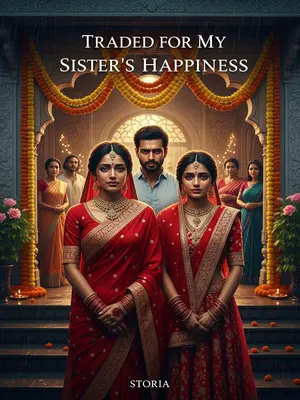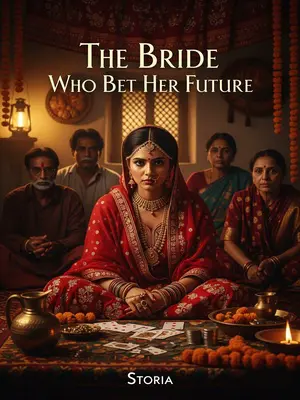Chapter 1: The Shattering of Izzat
In our family, once the elders agreed, their word was law. The whole house buzzed with excitement—from Maa’s old friends gossiping over masala chai in the kitchen, to Papa’s colleagues sending congratulatory WhatsApp messages in the corridor. Aunties huddled, comparing horoscopes, while uncles boasted about alliances. Everything seemed settled, and I, Priya, was expected to look forward to my new life. But behind my composed face, my heart fluttered with a strange blend of anticipation and dread.
Rohan coaxed me into breaking my vow of chastity.
At first, he was gentle, whispering, “Priya, we’re practically married, what’s the difference?” My room was thick with jasmine-scented incense and the faint notes of a Bollywood love song on FM radio. My cheeks burned, caught between desire and guilt, as his hands trembled around me. In that moment, I believed every word—believed that love, and his touch, made everything sacred. My promise to Maa’s memory slipped quietly away, lost between my hurried breaths and his sweet, dangerous words.
The next day, despite the pain, I searched for him—only to witness him throw my intimate undergarment before my father and declare:
As I limped through the house, clutching the edge of my dupatta, I braced myself for Rohan’s words. But nothing could have prepared me for the shame that awaited. In the living room, under the tick-tock of the old family clock, he flung my pink bra onto the marble floor at Papa’s feet. The clink of steel glasses stilled as the servants froze. A faint whiff of yesterday’s rajma lingered in the air, mingling with the chaos. One old auntie dropped her tiffin, eyes wide. I felt the ground slip away beneath me. This wasn’t a filmi scene—this was my life, and my izzat was being torn apart, thread by thread, before my father’s eyes.
“Main aisi ladki se shaadi nahi kar sakta jisko sharam hi nahi hai.”
His voice was cold and arrogant, standing tall as if he alone had any honour. Papa’s knuckles whitened on the wooden armrest, his face the colour of over-brewed chai. My heart pounded so loudly I thought the whole mohalla would hear. In the background, a neighbour’s pressure cooker whistled, echoing my humiliation.
“If the engagement can’t be broken, then make the daughter born to Chacha ji’s wife the legitimate one and let her marry me instead.”
Rohan’s words hung in the air, heavy as a Delhi summer. Aunties exchanged shocked glances. Even the family lawyer, always unflappable, looked up from his tea, biscuit suspended midair. The old priest, who’d come to set the wedding muhurat, began a silent Hanuman Chalisa. But Papa’s silence was louder than all their whispers.
So it turned out, the woman he truly loved was my younger half-sister, born to my father’s second wife.
I remembered Meera’s shy eyes, the soft chime of her glass bangles, the way she always lowered her gaze before elders. The realisation hit me like a monsoon gust. Every joint family hides undercurrents, but I had been blind to this one, lost in childish hopes. My own blood had become a stranger overnight.
Later, Rohan said, “Future mein jab tum meri dusri biwi banogi, Meera ke saamne kabhi akad mat dikhana. Woh hi asli gharwali hai.”
He spoke as if bestowing a favour, as if my humiliation was a mere household matter. His words slithered around me like poison, burning with betrayal. In our tradition, even a second wife must touch the feet of the first during festivals. I pictured myself, pallu drawn over my head, bowing before Meera every Karva Chauth.
I remained silent.
Sometimes, silence is the only dignity left to a woman whose voice is drowned by louder men. My lips pressed tight, I forced myself not to break—not here, not before him. I straightened, adjusting my dupatta with trembling hands.
He did not know.
He could never guess the cyclone inside me, my breath coming in short, ragged bursts. I kept my face blank, just as Maa had taught me—never show your weakness, beta, not even to those you love. A stray tear threatened to escape, but I blinked it back, holding on to pride as my only armour.
After this incident, Papa quickly arranged my marriage into a family in Kaveripur, far from Delhi.
Papa acted swiftly—his pride wounded, but his sense of duty sharper. Relatives began whispering about alliances in distant towns. By the next morning, the drawing room was heavy with sandalwood incense and resignation, as matchmakers and rishta aunties discussed my future like rearranging furniture. Delhi had become too small for my shame. Kaveripur was a sleepy town by the river, a world away from Delhi’s chaos. Papa, his hair now streaked with grey, sat me down gently. “Beta, this is for your own good. A new beginning.” His voice never wavered, not even once.
As I walked down the corridor, two aunties stood near the doorway, their voices low but sharp: “Arre, Priya toh bilkul besharam nikli. Kis kis ke saath phasi hogi, pata nahi.” Their words stung more than Rohan’s betrayal, their gossip wrapping around me like a wet sari. I wanted to disappear, but their whispers clung to me, anchoring my shame in a way nothing else could.
A WhatsApp notification pinged in the family group. The message—‘So sorry to hear about Priya’s engagement breaking, hope she’s okay’—flashed on the screen. I felt the exposure like a slap, knowing that my story was spreading faster than I could ever outrun it.
My tears that night tasted of salt, regret, and something sharp—a new, stubborn defiance.






